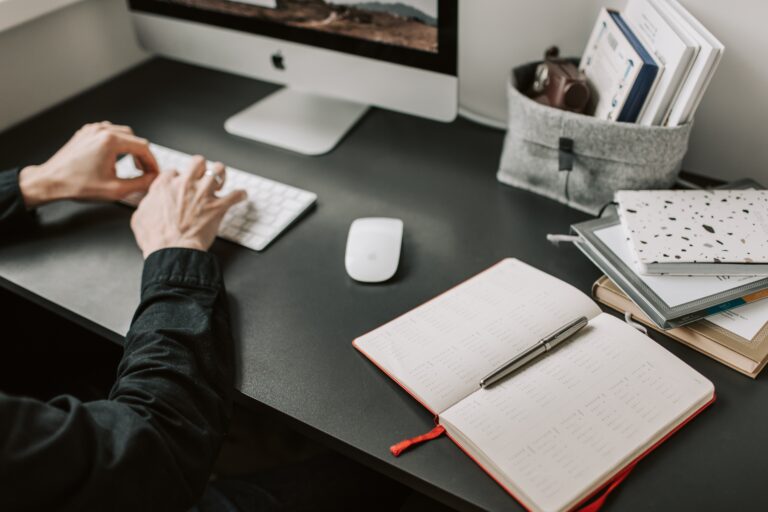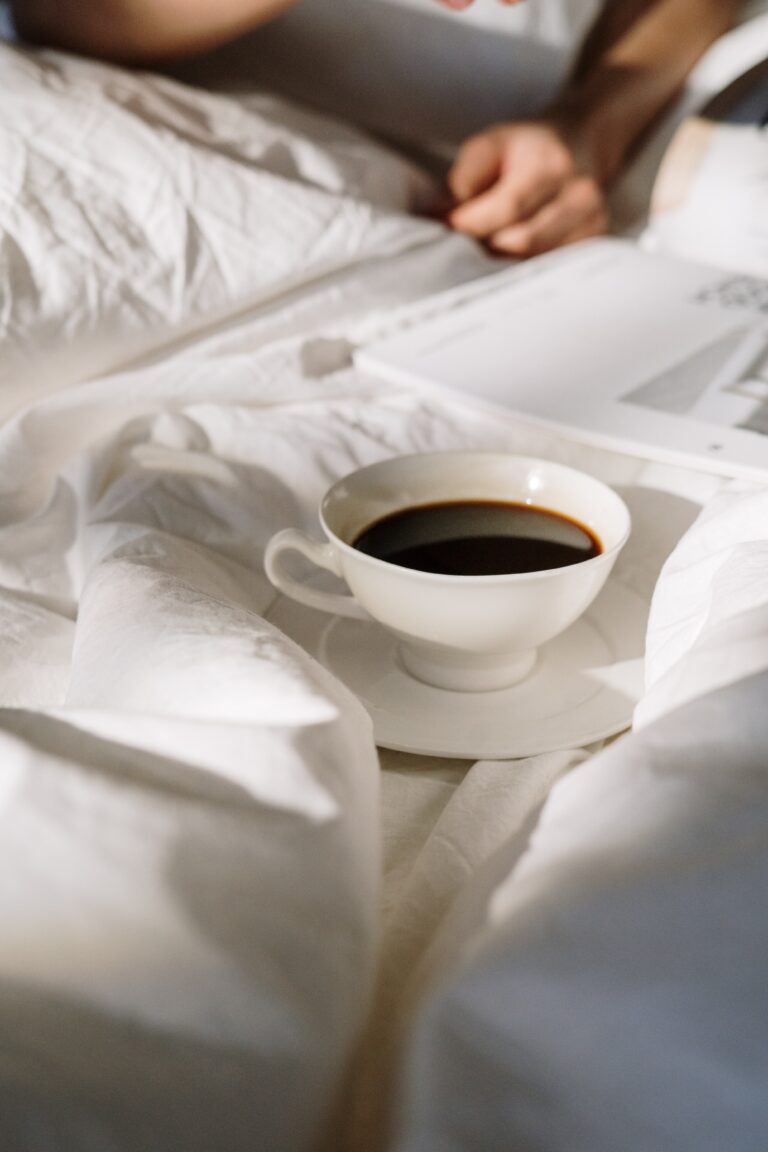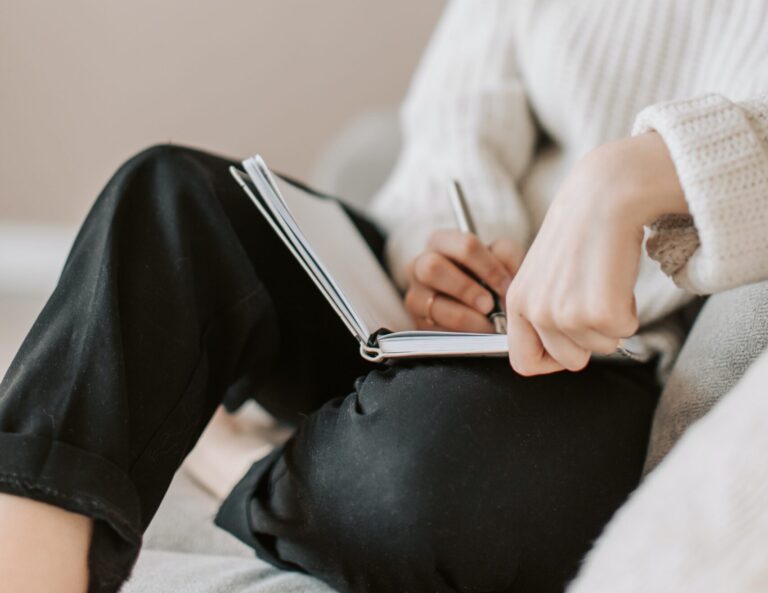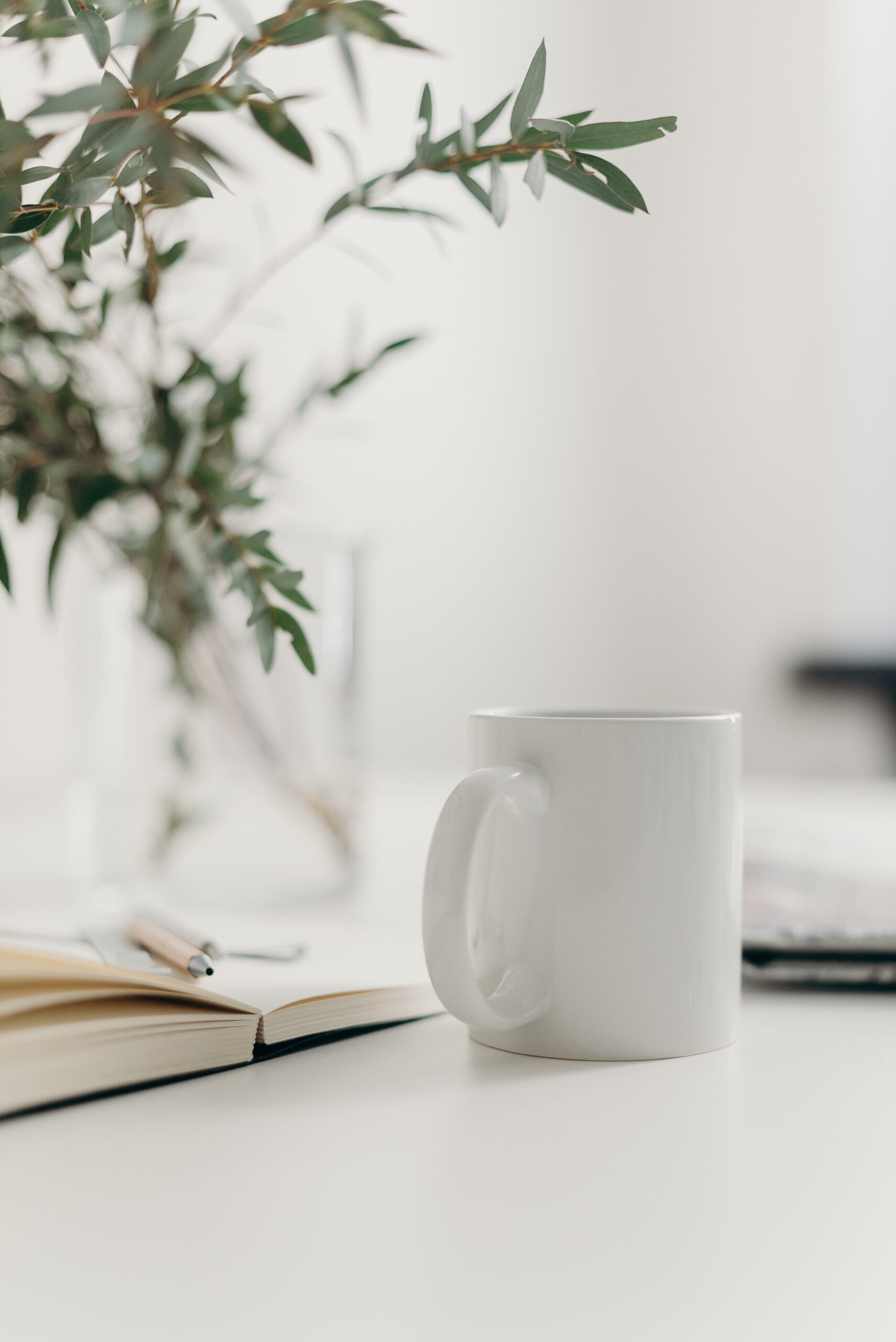
7 Tips That Helped Me In Becoming A Morning Person
Disclosure: This article may contain affiliate links. When you click these links, I may get a small commission. It won’t cost you anything, but it helps me to run this site. I only promote products and services that I think are great and trustworthy.
A concept seeking a lot of attention today is becoming a morning person and 5:00 a.m. morning routines. Many people declare that waking up earlier results in better days and therefore makes them feel happier and more productive.
Arrmon Abedikichi, author of "Morning Magic: How to Sleep Better, Wake Up Productive and Create a Marvellous Morning Routine", discusses how we have more focus and willpower in the morning. Thus, why it is the best time to wake up and start utilizing this time of the day. This book also helps you understand WHY you might not be successful in becoming a morning person. I 100% recommend reading this! It is FREE on the apple books app, so take advantage.
Benefits of Becoming a Morning Person
- Feel more energized
- More productive
- Happier
- More likely to workout
- Less stress throughout the day
- More organized
- Better mental health
I can easily say that some of these benefits listed above are true, and I have seen these changes in myself. Being a morning person has provided me with so much extra time. I even get to decide exactly what to do with that time. If you've decided to make a change in your life, by waking up earlier, you came to the right place. I'm sharing some ways that have helped me in the past and may assist you in your journey.
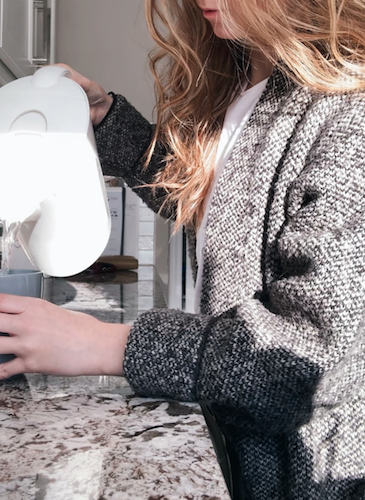
How to Become a Morning Person
#1 The night before.
Firstly, you have to consider when you're going to bed. What are your current habits before bed? Something we don't always consider is how our behaviors before bed highly impact the quality and quantity of our sleep. To get out of bed and feel energized in the morning, you'll need enough sleep. A night routine, and a calming environment, is a great way to get more relaxed and ready for bed.
Something I had to make a change to was the amount of caffeine I was consuming during the day, and before bed. I still enjoy a warm drink before bed, as it helps calm me and feel cozy. So, I bought some caffeine-free tea so I still get to experience my cozy vibes before bed, without the caffeine destroying my sleeping patterns.
#2 Start slowly.
Don't set yourself up for failure by jumping to 7 am from 10 am in one night. Take your time by making small changes. For example, wake up 15 minutes earlier every day till you reach your ideal time. Wake up at 9:45, then 9:30, then 9:15, etc. It can be hard for our bodies to make adjustments to their current routines. This is why starting slow will have better results than attempting to make drastic changes right away.
This concept works with the night as well. If you usually fall asleep by midnight, try getting into bed earlier to begin winding down, or perform night routines earlier, so that you are still receiving enough sleep throughout the night.
Sometimes I get into bed around 9:00 p.m. and I read, journal, stretch, or finish up a show on my laptop. I only bring my laptop in my room if I've gone into bed earlier than 11:00 p.m. The screens will keep me up, and sometimes it can be hard to refuse to watch another episode. By doing this I've been going to bed around 1-2 hours earlier than usual and has made waking up in the morning a lot more achievable.
#3 Consistent sleep schedule.
Once you've accomplished reaching a time you'd like to start waking up at, try to stay consistent with that time. Yes, even on the weekends and days you aren't busy. It's good to get your body, and mind, into a rhythm. You'll have an easier time waking up earlier because your body has adjusted and received good consistent sleep.
Consistency will help our brains to understand when to go to sleep and when to wake up.
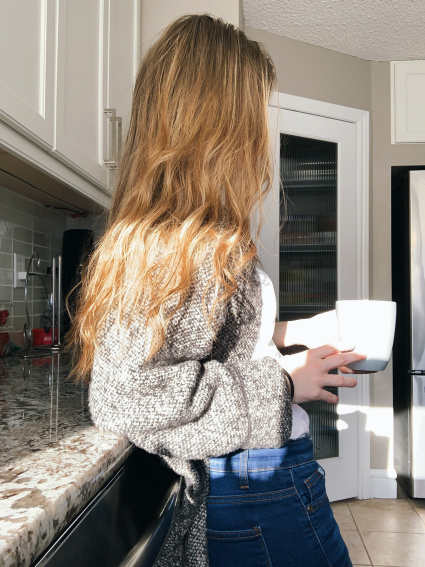
#4 Plan something that excites you.
As the famous Marie Kondo likes to say, find something that "sparks joy", but in your mornings. Whether it's your favorite breakfast, book, that good cup of coffee or a morning routine that motivates you to start your day, keeping that motive in mind helps you to get out of bed and begin your day. It's a lot easier to wake up knowing you get to enjoy your favorite things. Genuinely, how hard would it be to try and wake up when you have absolutely nothing to look forward to?
#5 Set an alarm.
If your body already doesn't wake up early naturally, you'll have to set yourself an alarm. NO HITTING SNOOZE. Our brains easily convince us that staying in bed is the better option. "It's more comfortable", "it's nice and warm," "just 5 more minutes". Don't think about getting out of bed, just do it. After hitting snooze, you'll end up feeling groggy.
A great way to force yourself out of bed is by placing your phone further away from you. This ensures you don't hit snooze every 5 minutes. Once you run over to turn that annoying alarm off, you've already completed the hardest part of waking up. Getting out of bed.
#6 Take advantage of natural light.
I LOVE natural light. Opening up my curtains helps me feel more refreshed and energized to start the day. It brightens up my home and also my mood. If your room is constantly dark, you'll never want to wake up. Daylight is a natural way for your body and mind to say "hey, it's time to wake up".
#7 Avoid taking long or too many naps.
I know, sometimes naps are needed. Life isn't always going to be perfect, you're stressed, tired, worked late last night, etc., and sometimes a nap is important. According to Science Of People, the ideal time for a person to take a nap is between 1:00 p.m. and 4:00 p.m. Napping later than that could affect your sleep at night. If you're planning on taking a nap, 90-minutes can improve:
- Creativity,
- Emotional and procedural memory.
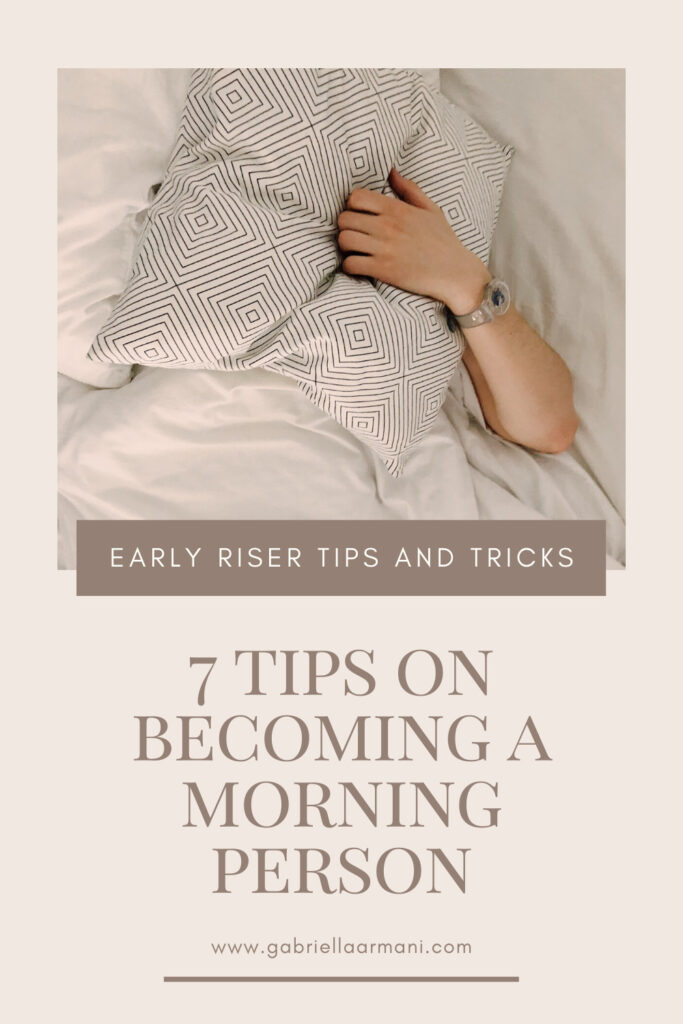
Those were my tips on becoming a morning person that I've done in the past and has helped me love my mornings. Anyone else here an early riser? What is your favorite part of the morning time? Share below!
